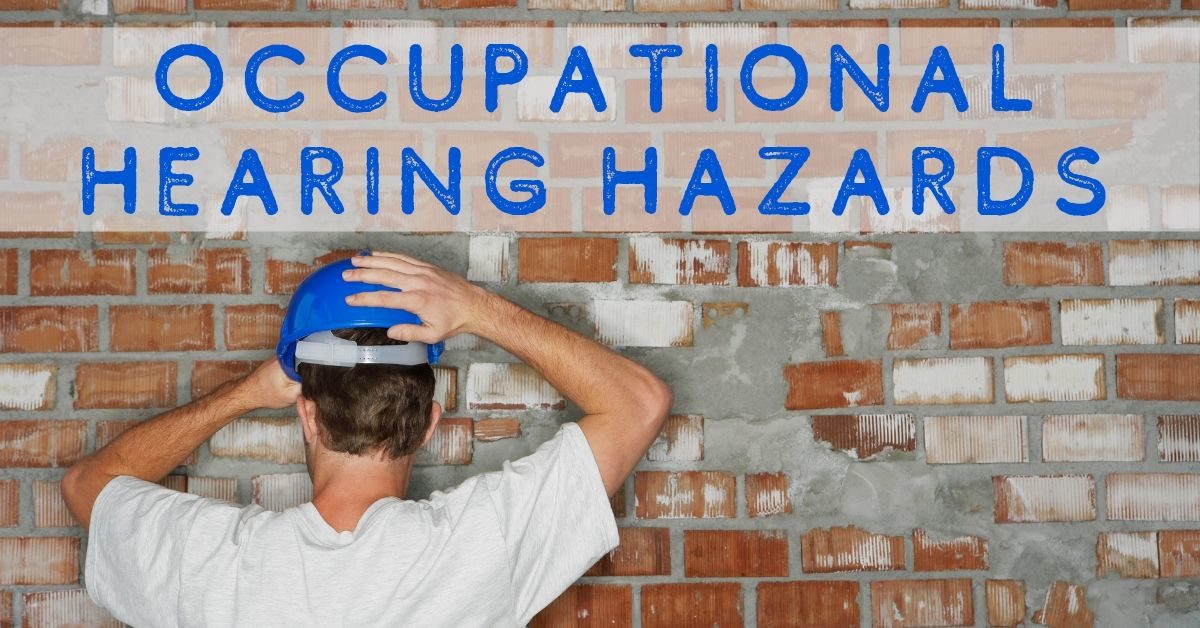- Common Hearing Aid Problems & How to Fix Them - June 14, 2021
- Why People Avoid Treating Hearing Loss — and Why You Should Schedule a Hearing Test! - May 21, 2021
- Common Hearing Aid Problems & How to Fix Them - May 14, 2021
Noise at work is not just something to grumble about to your co-workers; it could also be dangerous to your health. Around 22 million workers work in conditions of potentially damaging noise every year, according to the CDC. And these workers are not taking it lying down: About $242 million is paid out every year on workers’ compensation every year due to exposure to hearing loss.
What is noise?
Noise is considered any kind of unwanted sound. But we focus on physically damaging levels of noise when talking about occupational hearing hazards. Noise is measured in decibels (dBs) and anything considered higher than 85dB is considered damaging noise. To put that into context, standing next to an idling truck is about 85db, and a loud rock concert can go up to 120db.
When we are continually exposed to loud sounds, this destroys the nerve endings in the inner ear over time. As these are destroyed, the individual has a hearing loss which is unable to be medically corrected. It is permanent.
How do I know if my workplace is too noisy?
The absolute bottom of damaging noise starts at 85dBs, where eight hours of exposure is enough to cause hearing loss. So even standing next to that truck for one shift at work can damage your hearing. This risk of damage rises dramatically with each increase in decibel: At the 120dB range, it only takes a few seconds before hearing damage can occur.
You can usually tell if the noise at work is too loud if people have to shout at you for you to understand them, at a distance of 1 meter. But to be more precise, it is a good idea to use a smartphone to measure the noise around you when you think that it might be too loud.
Who is at risk?
Unsurprisingly, those who work in construction, entertainment and the military are at high risk of hearing loss from noise. But professional and amateur musicians are also at an equally high risk. Aside from loud rock bands, this includes those who play music that you might not considered conducive to hearing loss. A recent Norwegian study for example found that 43% of the musicians in an orchestra was experiencing a type of hearing loss.
Other surprising occupations at risk include farmers and teachers. The machines involved in industrial farming and the noises of animals can be deafening to farmer’s ears. Likewise, a full day of managing a class of 30 students can be challenging for your ears as well as your patience!
How do I protect my hearing at work?
An ounce of prevention is worth a pound of cure, according to Benjamin Franklin. Here’s how to protect yourself from noise-induced hearing loss:
- Try to stop the noise at source. Make sure your work equipment is well oiled and maintained, and if you can’t stop the machine running at that noise level, try to move it away from where you work.
- If you work somewhere where you routinely exposed to sounds above 85dB, ask your employer for some free ear protection.
- Remember to wear your hearing protection properly every time you encounter loud noises.
- It’s very easy to get ahead of yourself and raise the volume in response to the loud sounds around you. But don’t forget to listen to music at a reasonable volume when working.
What are my rights?
The Occupational Safety and Health Administration (OSHA) is a government body which was started to protect the health of employees by getting employers to follow strict regulations. With regards to noise at work, workers have a right to:
- Work in a place that is safe from serious harm
- Receive information and training about noise hazards, access to ways to prevent noise if there is a significant noise level in the working environment.
- Review company records of those who have previously acquired hearing loss at work.
- Complain to the OSHA and ask them to inspect the individual’s workplace if they think their employer is violating OSHA regulations.
- Reserve the right to air grievances about noise without fear of reprisal.
Dr. Hear
Do you think you might have incurred a hearing loss because of your job? Why not find out for sure with a hearing test? We provide comprehensive hearing tests and stock a range of hearing aids for all budgets and hearing losses. Contact us today for more information.

